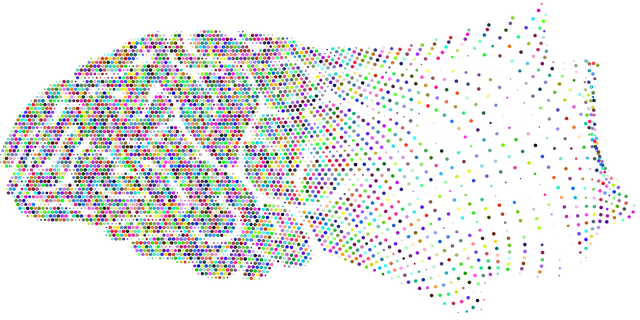Arvada's autism spectrum disorder (ASD) mental wellness programs offer holistic support through a blend of therapeutic techniques, including applied behavior analysis, cognitive behavioral therapy, and social skills training. These personalized programs enhance self-expression, interpersonal communication, and emotional regulation. Evaluation involves a mix of quantitative (standardized assessments like SCQ, ASQ) and qualitative (interviews, client self-reports) methods to track progress, tailor treatment plans, and contribute to research on effective ASD treatments, ultimately improving clients' well-being, daily functioning, and self-care strategies in Arvada.
In the realm of autism spectrum disorder (ASD) therapy, effective evaluation methods are paramount to measure progress and ensure holistic wellness. This article explores various strategies for assessing mental wellness programs designed for individuals with ASD in Arvada. From quantitative techniques tracking behavioral changes to qualitative insights from personal narratives, we delve into best practices. Additionally, the power of mixed-methods evaluation is highlighted, offering a comprehensive view of Arvada autism spectrum disorder therapy’s impact. Understanding these approaches is crucial for optimizing support and enhancing lives.
- Understanding Mental Wellness Programs for Autism Spectrum Disorder (ASD)
- Selecting Appropriate Evaluation Methods for ASD Therapy
- Quantitative Assessment Techniques in ASD Treatment Programs
- Qualitative Approaches to Evaluate the Impact of ASD Therapies
- Mixed-Methods Evaluation: A Holistic Perspective for Arvada ASD Therapy Programs
Understanding Mental Wellness Programs for Autism Spectrum Disorder (ASD)

Mental wellness programs designed for individuals with Autism Spectrum Disorder (ASD) focus on fostering a deeper understanding and management of their unique emotional landscapes. These programs often blend various therapeutic approaches, such as applied behavior analysis, cognitive behavioral therapy, and social skills training, to create individualized support systems. The goal is not only to address symptoms but also to enhance overall well-being, improve daily functioning, and promote self-care strategies.
One effective tool within these programs is mental wellness journaling exercises, encouraging individuals to express their thoughts and feelings while providing a sense of structure and guidance. Additionally, social skills training plays a pivotal role in helping ASD individuals navigate interpersonal interactions and develop meaningful relationships. Furthermore, risk management planning is crucial for mental health professionals working with ASD clients, ensuring they are equipped to handle potential challenges and promote safe and supportive environments.
Selecting Appropriate Evaluation Methods for ASD Therapy

When evaluating the effectiveness of Arvada Autism Spectrum Disorder (ASD) therapy programs, selecting the right evaluation methods is paramount. The choice of assessment tools should align with the specific goals and objectives of the therapy, focusing on measurable outcomes that reflect improved functioning. For instance, incorporating Mind Over Matter principles, a therapeutic approach targeting mental wellness, requires evaluative strategies that capture changes in emotional regulation and stress management skills.
Social Skills Training, another crucial component of ASD therapy, necessitates assessment tools capable of measuring progress in interpersonal communication and conflict resolution techniques. By employing both quantitative and qualitative methods, such as standardized assessments, observer ratings, and client self-reports, therapists in Arvada can gain a comprehensive understanding of an individual’s progress. This allows for tailored adjustments to the treatment plan, ensuring that interventions remain effective and aligned with the unique needs of each client.
Quantitative Assessment Techniques in ASD Treatment Programs

Quantitative assessment techniques play a pivotal role in evaluating the effectiveness of mental wellness programs, particularly for individuals with Autism Spectrum Disorder (ASD). In the context of Arvada Autism Spectrum Disorder Therapy, these methods offer structured and data-driven insights into the progress and improvement of patients. By employing standardized metrics and tools, therapists can accurately measure various aspects of ASD symptoms, cognitive abilities, and behavioral changes over time. This quantitative approach allows for a comprehensive understanding of what interventions are working and where adjustments might be needed in treatment plans.
For instance, assessment techniques such as the Social Communication Questionnaire (SCQ) or the Autism Spectrum Quotient (ASQ) can gauge communication skills, while tools like the Conners’ Continuous Performance Test (CCPT) assess executive functioning. Additionally, crisis intervention guidance and conflict resolution techniques can be evaluated through frequency and severity metrics of behavioral incidents. This quantitative data not only aids in tracking individual patient progress but also contributes to the broader research on effective ASD treatment methods, including communication strategies that foster better social interactions and improved quality of life for those on the spectrum.
Qualitative Approaches to Evaluate the Impact of ASD Therapies

Qualitative approaches offer a valuable perspective when evaluating the impact of autism spectrum disorder (ASD) therapies. These methods allow for an in-depth exploration of participants’ experiences and perceptions, providing insights into the effectiveness of interventions aimed at improving emotional well-being promotion techniques. Through interviews, focus groups, or observational studies, researchers can uncover nuances related to self-esteem improvement and other aspects of mental wellness that quantitative measures might miss.
For instance, a Mental Wellness Podcast Series Production centered on ASD therapy could involve qualitative data collection to understand the personal journeys of individuals with ASD. This approach enables participants to share their stories, highlighting challenges overcome, skills acquired, and the overall impact of the therapy on their lives. By engaging in such rich narrative formats, researchers can gain valuable insights into the therapeutic process and its effects, ultimately informing the development of more tailored and effective support strategies for folks navigating Arvada Autism Spectrum Disorder Therapy.
Mixed-Methods Evaluation: A Holistic Perspective for Arvada ASD Therapy Programs

Arvada Autism Spectrum Disorder (ASD) therapy programs benefit greatly from a mixed-methods evaluation approach, offering a comprehensive and holistic perspective on client progress. This strategy combines both quantitative and qualitative techniques to gain deeper insights into various aspects of mental wellness. By assessing outcomes using surveys, interviews, and observations, therapists can measure specific targets such as anxiety relief, inner strength development, and depression prevention.
Quantitative data from surveys provides a broad overview of participant well-being, while in-depth qualitative interviews uncover nuanced experiences and personal reflections. Observational notes add another layer by capturing non-verbal cues and interactions, allowing for a more holistic understanding of clients’ emotional states and progress over time. This mixed-methods evaluation is invaluable for refining therapy strategies, tailoring interventions to individual needs, and ensuring the effectiveness and success of Arvada ASD therapy programs.
Evaluating mental wellness programs for individuals with Autism Spectrum Disorder (ASD) is vital to ensuring effective treatment and improving their overall quality of life. By combining quantitative assessments, qualitative insights, and mixed-methods, therapists in Arvada can gain a holistic understanding of the impact of ASD therapies. This comprehensive approach allows for tailored interventions and enables continuous improvement in Arvada Autism Spectrum Disorder therapy programs, ultimately enhancing the well-being of those on the spectrum.














